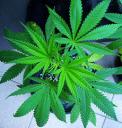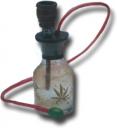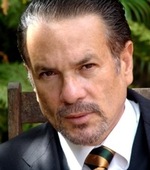




Marijuana is by far the most popular illegal drug in the world. According to the
2007 World Drug Report by the UN Office on Drugs and Crime, it is grown in
at least 172 countries. It has various names, including but not limited to: Cannabis, grass, weed, pot, ditch, dope, hemp, ganja, dagga, dimba, and chira. Worldwide consumption of all illegal drugs is estimated at 200 million people, marijuana accounts for 160 million. In other words
marijuana accounts for 80% of all illegal drug use worldwide. The possession, use, or sale of psychoactive cannabis products became illegal in most parts of the world in the early 20th century. Since then, some countries have intensified the enforcement of marijuana prohibition while others have reduced the priority of enforcement, almost to the point of legalization, as is the case in the Netherlands. The production of marijuana for drug use remains illegal throughout most of the world.
Who Uses It?




If all the pot smokers lived in one country, that country would be the seventh largest country in the world.
Just under 4% of the global population uses marijuana however there are some countries where the percentage is much higher:
- Micronesia and Papua New Guinea (29%)
- Ghana (21.5%)
- Zambia (17.7%)
- Canada (16.8%)
- Australia/New Zealand (13.4%)
- US (12.6%)
If broken down by region, the countries with the highest percentage of users are:
- Africa: Ghana - 21.5%
- Asia/Middle East: Israel - 8.5%
- Europe: Cyprus - 14.1%
- Americas/Caribbean: Canada - 16.8%
- Oceania: Papua New Guinea - 29.5%
Who Produces It?



Global production of marijuana also dwarfs other illegal drugs:
- Marijuana - 42,000 metric tons
- Opium - 6,610 metric tons
- Cocaine - 984 metric tons
- Amphetamines - 480 metric tons
Marijuana is the most pervasive drug in the world. Most countries produce for local consumption and export to neighboring countries. Although most European countries grow their own supplies, it is the only region that relies on importation, mostly from Africa and Asia. Global production by region:
- The Americas (46%)
- Africa (26%)
- Asia (23%)
- Europe (5%)
- Oceania (1%)
In general, production of marijuana is declining in North America and Africa, due in part to eradication efforts in those regions, and increasing in Asia, Europe and South/Central America.
Trends



The use of marijuana has been declining in North America (including Canada and Mexico). In the US consumption has decreased from a 1979 high of 16.6% to 10.4% in 2005. The same situation is true for Oceania (including Australia, New Zealand and New Guinea). In Australia there has been a 37% decline between 1998 and 2004.
On the other hand in South America there has been an increase in demand, with Brazil leading the surge, from 1% in 2001 to 2.5% in 2005. In Africa, 17 countries reported an increase in use, 4 reported a decline and 4 reported no change. In both Europe and Asia there were mixed results.
Some Issues




Illegalization of Marijuana
Throughout history marijuana has played an integral part in various societies on multiple levels; culturally, religiously and for medicinal purposes. Starting in the early 1900s, in the US, marijuana gradually became an illegal substance. After 1937, with the passage of the federal Marijuana Tax Act, marijuana use became illegal nationwide.
What may be of surprise is that racism played an important role in the "illegalization" of marijuana. Around 1915 the Rocky mountain and Southwestern states (Montana, Texas, New Mexico and Colorado) experienced an influx of Mexican laborers who had migrated north looking for work. They were generally employed as field hands, working in beet fields and picking cotton. They also brought with them marijuana which was unknown to white people at that time. A Texan politician, from the senate floor, used the following logic to propose one of the first state laws making marijuana illegal:
"All Mexicans are crazy, and this stuff (referring to marijuana) is what makes them crazy." Or, as the proponent of Montana's first marijuana law said, (and imagine this on the floor of the state legislature) and I quote, "Give one of these Mexican beet field workers a couple of puffs on a marijuana cigarette and he thinks he is in the bullring at Barcelona."
It wasn't hostility to the drug, it was hostility to the newly arrived Mexican community that used it that prompted the first anti-marijuana laws. A few years later states in the Northeast (New York, Connecticut etc) looked at what had happened in Texas and Montana and also decided it was time to ban marijuana. These states, however, did not have significant numbers of Mexican laborers and marijuana was an unknown drug. They used a different but equally twisted logic to make marijuana illegal:
The New York Times in an editorial in 1919 said, "No one here in New York uses this drug marijuana. We have only just heard about it from down in the Southwest," and here comes the substitution. "But," said the New York Times, "we had better prohibit its use before it gets here. Otherwise" -- here's the substitution concept -- "all the heroin and hard narcotics addicts cut off from their drug by the Harrison Act and all the alcohol drinkers cut off from their drug by 1919 alcohol Prohibition will substitute this new and unknown drug marijuana for the drugs they used to use."
They feared that drug addicts and alcoholics would switch to marijuana, so to prevent that they made marijuana, this
"new and unknown drug", illegal. By the time the federal Marijuana Tax Act was made law in 1937, there were some 27 states that had already made marijuana illegal.
For more on the history of marijuana in the US click here.
Medical and Religious use
The partnership of Cannabis and man has existed now probably for ten thousand years -- since the discovery of agriculture in the Old World. One of our old cultivars, Cannabis has been a five-purpose plant: as a source of hempen fibers; for its oil; for its akenes or "seeds," consumed by man for food; for its narcotic properties; and therapeutically to treat a wide spectrum of ills in folk medicine and in modern pharmacopoeias.
Ancient cultures of India, Persia, Egypt, Assyria, Greece and Rome used
marijuana for medicinal purposes starting as far back as 1,600 BC. The use of
marijuana as an intoxicant has been documented in India as far back as 1,000 BC and spread throughout Asia and the Middle East and thoroughly permeated Islamic culture within a few centuries. Because alcohol was prohibited to the followers of Mohammed, cannabis (marijuana) was accepted as a substitute.
The Rastafarians in Jamaica and the
Ethiopian Zion Coptic Church view ganga (marijuana) as a religious sacrament. Its use became a reactionary device to the society and an index of an authentic form of freedom from the establishment. It would therefore be right to assume that as a protest against society, ganja smoking was the first instrument of protest engaged in by the movement to show its freedom from the laws of "Babylon (society)." But ganja has other sides to it; its use produces psycho-spiritual effects and has socio-religious functions especially for people under stress. It produces visions, heightens unity and communal feelings, dispels gloom and fear, and brings tranquility to the mind of the dispossessed. So, ganja gradually became a dominant symbol among the cultists and has remained so to this day. One of the most popular reggae artists,
Bob Marley, a Rastafarian, was a major voice for the cultural/spiritual use of marijuana. In the following interview he explains the Rastafarian religion and the part marijuana plays:
[youtube=http://www.youtube.com/watch?v=a7I_hjJjKz0]
The following video is filmed in a marijuana field in Jamaica. It shows the environment in which the plant is grown on the island.
[youtube=http://www.youtube.com/watch?v=TrgRpKYcTrA]



Recently in the US there has been much discussion surrounding the medicinal properties of marijuana. In twelve (12) states including California, Oregon, Nevada, Maine and New Mexico
marijuana use is legal for approved medical conditions. Thirty-five (35) states and the District of Columbia have passed legislation recognizing marijuana's medicinal value. This has caused a strain between the
federal government and these states. The federal government considers all marijuana use as illegal, regardless of what it is used for. However
medical experiments have proven that THC, the active ingredient in marijuana can be effective in the treatment of lung cancer. Marijuana is also
"moderately well suited for particular conditions, such as chemotherapy-induced nausea and vomiting and AIDS wasting." according to the Institute of Medicine.
The medical marijuana journal/newspaper O’Shaughnessy, spring 2004, lists the following conditions for which the California physicians found marijuana use to be effective: (1) AIDS wasting syndrome, (2) arthritis, osteo- and rheumatoid, (3) asthma (while not burning cannabis), (4) Crohn’s disease/inflammatory bowel disease, (5) depression, (6) mental illness--schizophrenia (pro and con articles have been reported), (7) degenerative neural diseases, (8) eating disorders/anorexia, (9) epilepsy/seizures, (10) glaucoma, (11) intractable breathlessness, (12) migraine, (13) multiple sclerosis, (14) nausea and vomiting, (15) obstetric problems (dysmenorrheal, morning sickness, uterine bleeding, and antimiscarriage), (16) pain, of all types, (17) phantom limb pain, (18) tumors ( blockade of a carcinogenesis enzyme), and (19) withdrawal symptoms of alcoholism, morphinism, cocaine addiction, chloral hydrate addiction, etc. (and probably tobacco addiction).
Marijuana Abuse



Many people smoke marijuana for reasons other than health or religion. In fact most people use it for experimental or recreational purposes:
In 2005, 14.6 million Americans aged 12 or older used marijuana at least once in the month prior to being surveyed, which is similar to the rate in 2004. About 6,000 people a day in 2005 used marijuana for the first time--2.1 million Americans. Of these, 59.1 percent were under age 18. As a percentage of those who had not used marijuana prior to the past year, youth marijuana initiation declined significantly, from 5.8 percent in 2004 to 5.2 percent in 2005.
The main active chemical in marijuana is THC (delta-9-tetrahydrocannabinol). The membranes of certain nerve cells in the brain contain protein receptors that bind to THC. Once securely in place, THC kicks off a series of cellular reactions that ultimately lead to the high that users experience when they smoke marijuana. There have been many studies done on the effects of marijuana on the brain, the heart, the lungs and learning and social behavior:
The Brain: THC connects to specific sites called
cannabinoid receptors on nerve cells and influences the activity of those cells. Many cannabinoid receptors are found in the parts of the brain that influence pleasure, memory, thought, concentration, sensory and time perception, and coordinated movement. The short-term effects of marijuana can include problems with memory and learning; distorted perception; difficulty in thinking and problem solving; loss of coordination; and increased heart rate.
The Heart: One study has indicated that an abuser's risk of heart attack more than quadruples in the first hour after smoking marijuana. The researchers suggest that such an effect might occur from marijuana's effects on blood pressure and heart rate and reduced oxygen-carrying capacity of blood.
The Lungs: Someone who smokes marijuana regularly may have many of the same respiratory problems that tobacco smokers do, such as daily cough and phlegm production, more frequent acute chest illness, a heightened risk of lung infections, and a greater tendency to obstructed airways. Marijuana abuse also has the potential to promote cancer of the lungs and other parts of the respiratory tract because it contains irritants and carcinogens. Marijuana smoke contains 50 to 70 percent more carcinogenic hydrocarbons than does tobacco smoke. Marijuana users usually inhale more deeply and hold their breath longer than tobacco smokers do, which increases the lungs' exposure to carcinogenic smoke. These facts suggest that,
puff for puff, smoking marijuana may be more harmful to the lungs than smoking tobacco.Learning and Social Behavior: Depression, anxiety, and personality disturbances have been associated with chronic marijuana use. Marijuana compromises the ability to learn and remember information, the more a person uses marijuana the more he or she is likely to fall behind in accumulating intellectual, job, or social skills. Moreover, research has shown that marijuana's adverse impact on memory and learning can last for days or weeks after the acute effects of the drug wear off. As a result, someone who smokes marijuana every day may be functioning at a reduced intellectual level all of the time. In a study, heavy marijuana abusers reported that the drug impaired several important measures of life achievement including cognitive abilities, career status, social life, and physical and mental health.
The latest treatment data indicate that marijuana was the primary drug of abuse in about 15 percent (289,532) of all admissions to treatment facilities in the United States. Marijuana admissions were primarily male (75 percent), White (55 percent), and young (40 percent were in the 15--19 age range). Those in treatment for primary marijuana abuse had begun use at an early age; 56 percent had abused it by age 14 and 92 percent had abused it by 18.
Legalization??
With all the available data on the costs to individuals and society, there is still an argument for the legalization of marijuana. The following is taken from an article promoting the legalization of the drug using cost/benefit analysis to justify its conclusion.
To see the entire article click here. A society outlaws a behavior or a substance when the value in prohibition outweighs the cost of enforcing this ban.
The United States of America has unequivocally reached a point where the costs of criminalizing marijuana are greatly outweighed by the potential benefits of making the drug a controlled and regulated substance. The exorbitantly high costs to law enforcement (and therefore to taxpayers) as well as the benefits to public health that would accompany regulation both point to one undeniable fact: the public good would be served by the legalization of the possession of marijuana.
The most pressing reason for decriminalization of marijuana is the drain on government funds wrought by prohibition. In 2003, marijuana related arrests reached another all-time high of 755,186; 88 percent of these arrests were for possession, not the manufacture or distribution, of marijuana. The cost in imprisonment of these offenders amounts to $1.2 billion each year. The average prison sentence for cultivation of large numbers of marijuana plants (100 or more) is a minimum of five years, longer than the average sentence for manslaughter or grand theft auto. The total costs, including law enforcement, judicial proceedings and imprisonment is estimated to be between 5 and 15 billion dollars annually. That total amounts to roughly $10 billion dollars that could have been used to build new schools, to open homeless shelters or veterans hospitals, to preserve the environment or even to fund anti-drug programs in schools. When state and national budget deficits are reaching all time highs, the costs of prosecuting individuals for possession of marijuana is an unjustifiable waste of taxpayer's money.
Currently, the market for marijuana exposes users to health hazards. Illegally sold marijuana often contains dangerous adulterants, contaminants and impurities such as herbicides, pesticides and fertilizers, which are hazardous to smokers. Legalization of marijuana would subject the production and sale of the drug to government inspection and regulation (a cost that would be offset by the taxing of marijuana sales) that would reduce the current dangers in smoking.
Unadulterated marijuana actually has relatively mild health effects when compared with other legal and illicit drugs. The National Academy of Sciences found "no conclusive link between marijuana and cancer, including cancers normally associated with tobacco."
Although marijuana contains four times the amount of tar of a cigarette of equal weight, because it is not tightly packed, the smokable substance in one marijuana cigarette is about half that of a normal cigarette. Marijuana is less addictive (only nine percent of users become dependent) than alcohol (15 percent), tobacco (32 percent), cocaine (17 percent) or heroin (23 percent).
The Academy further declared the "gateway drug" theory, the idea that marijuana often leads to use of harder drugs, to be invalid when they stated that there is "no evidence that marijuana serves as a stepping stone on the basis of its particular physiological effect."
Prohibition of marijuana is clearly a burden the American people no longer need to carry. Spending billions of dollars to prosecute individuals for using a drug with adverse health effects similar to, and in some cases milder than, those caused by other, legal drugs does not make sense. It is time the national government puts an end to the double standard, and makes marijuana a regulated substance for the good of those who use it, and for the benefit of those who do not.
United States Laws
Currently in the US, there are no uniform laws that states abide by. Some states like Arizona and Idaho have strict laws that involve incarceration for first time convictions and there are others like New York and Mississippi that have decriminalized the penalties for first time offenders. Federal laws are stricter than most state laws and possession of marijuana is punishable by up to
one year in jail and a minimum fine of $1,000 for a first conviction, regardless of the amount involved.
You can check out the laws in various states regarding marijuana use by clicking here: Click below for more information on marijuana-related subjects:
History of Marijuana Laws
Health-Related Marijuana Issues from the NIDA (National Institute on Drug Abuse)
History of Drug use in the US
Should Governments Legalize and Tax Marijuana?
Marijuana: Facts for Teens and Parents
Marijuana Convictions: State By State Laws

 Saturday, October 31, 2009 at 10:29PM
Saturday, October 31, 2009 at 10:29PM 
 med that Coke had no connections with the United States and was also not sure if his client would turn himself in voluntarily.
med that Coke had no connections with the United States and was also not sure if his client would turn himself in voluntarily. has also been criticism of Jamaica's Prime Minister, Bruce Golding. Tivoli Gardens is his constituency and he has mostly been silent on the requested extradition of Christopher Coke. An editorial asked a question that Prime Minister Golding needs to answer clearly and unequivocally:
has also been criticism of Jamaica's Prime Minister, Bruce Golding. Tivoli Gardens is his constituency and he has mostly been silent on the requested extradition of Christopher Coke. An editorial asked a question that Prime Minister Golding needs to answer clearly and unequivocally: Bruce Golding,
Bruce Golding,  Christopher Dudus Coke,
Christopher Dudus Coke,  JLP,
JLP,  Shower Posse,
Shower Posse,  Tivoli Gardens,
Tivoli Gardens,  Tom Tavares-Finson in
Tom Tavares-Finson in  Crime,
Crime,  Drugs,
Drugs,  Jamaica,
Jamaica,  Our World,
Our World,  news,
news,  politics,
politics,  world
world 




































